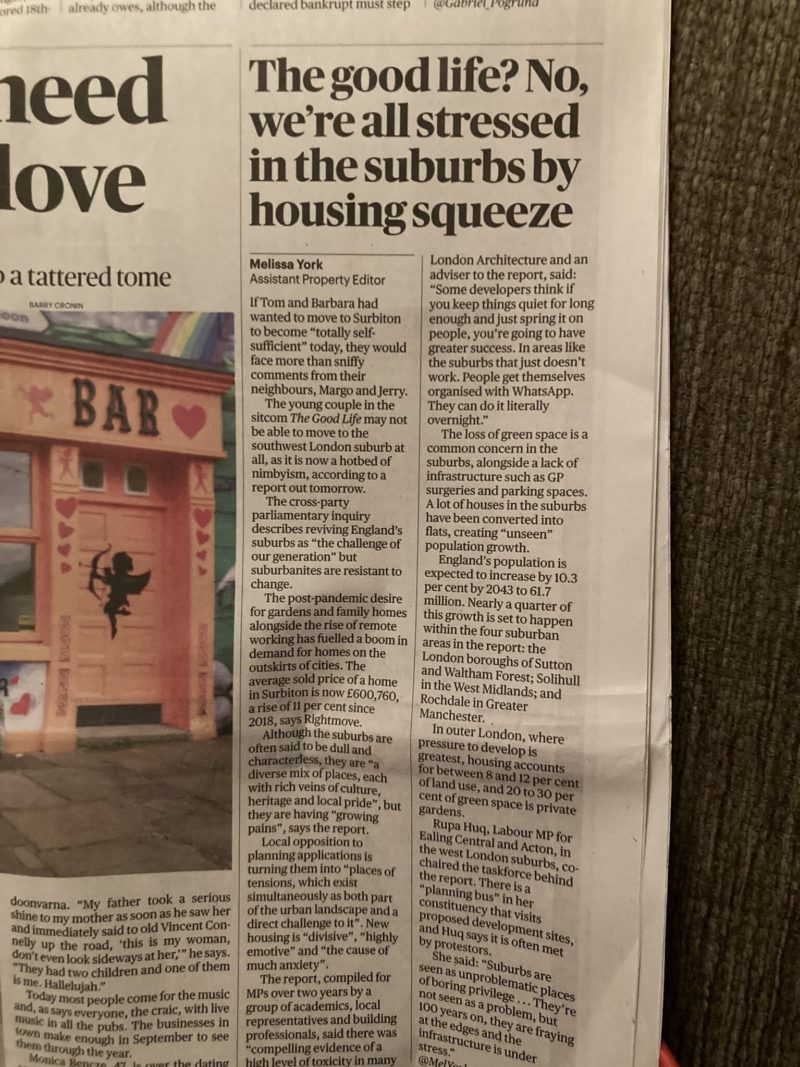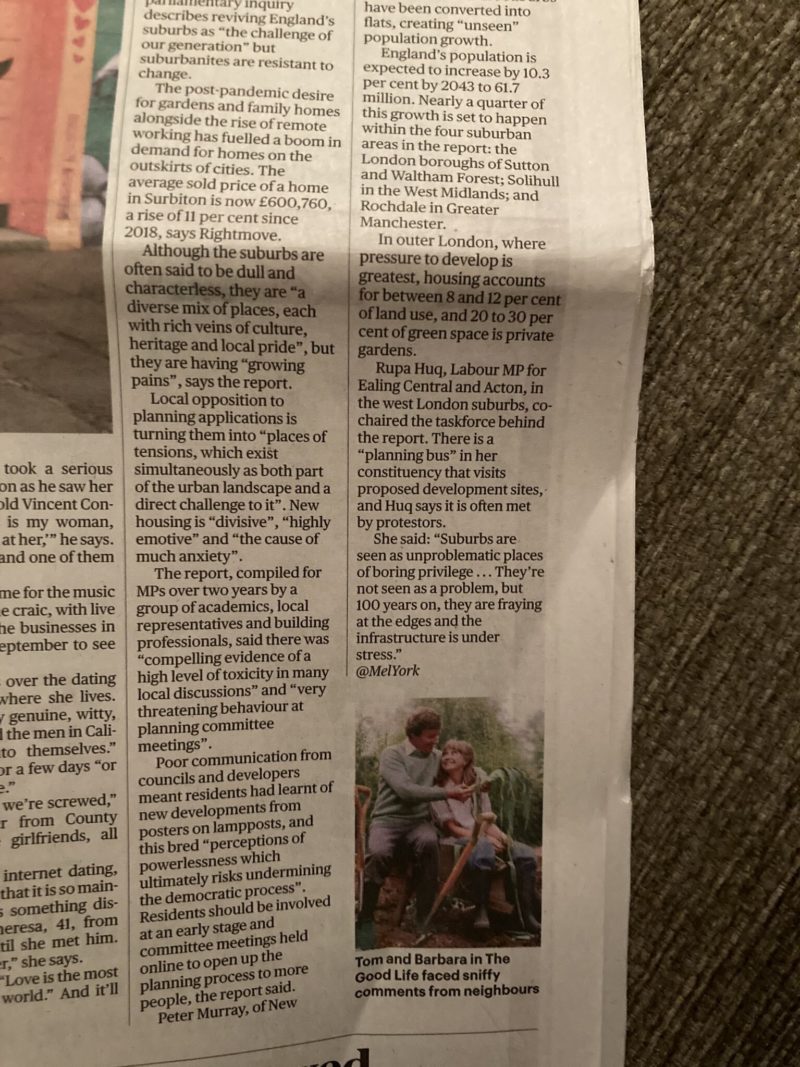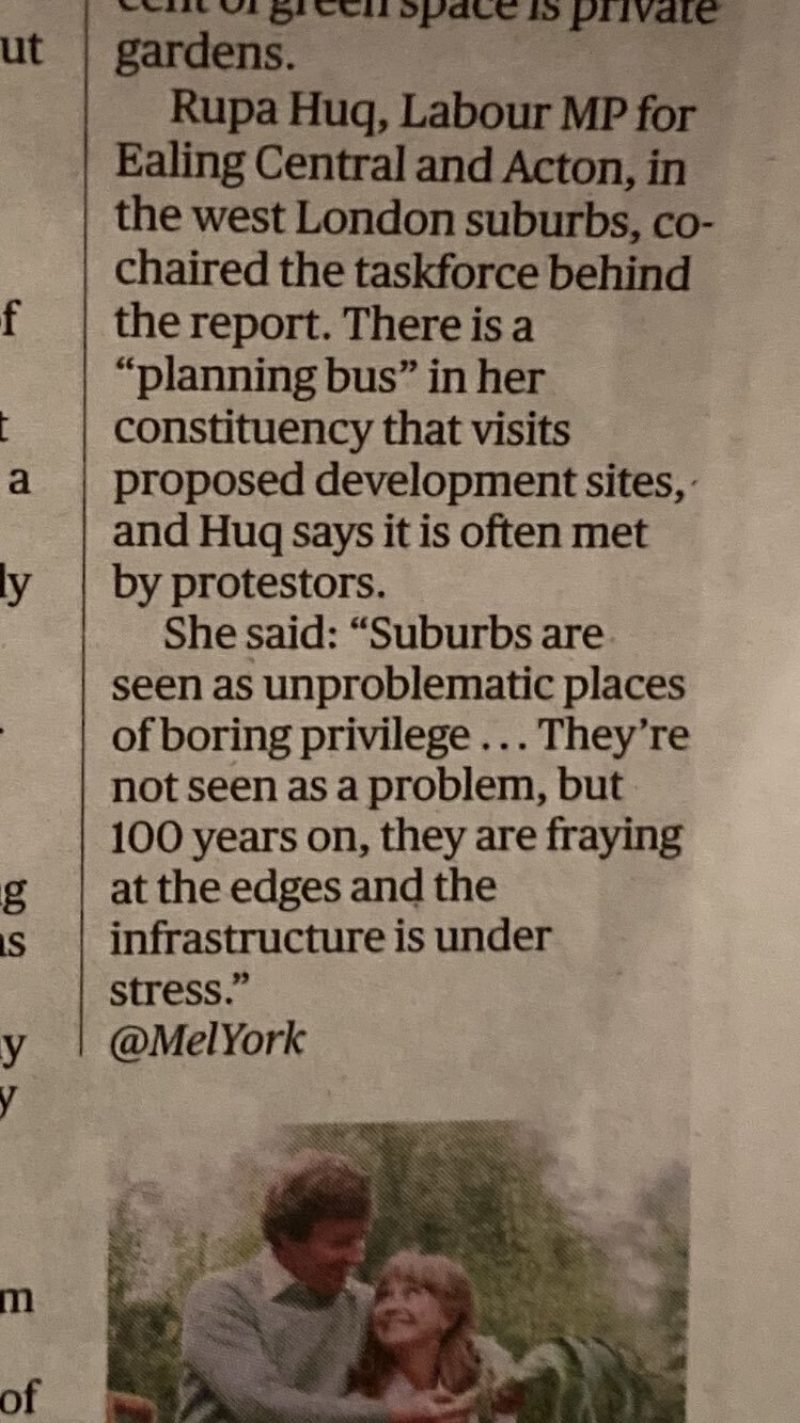Rupa Huq MP Member of Parliament for Ealing Central & Acton
Read the article in the Sunday Times.
If Tom and Barbara had wanted to move to Surbiton to become “totally self-sufficient” today, they would face more than sniffy comments from their neighbours, Margo and Jerry.
The young couple in the sitcom The Good Life may not be able to move to the southwest London suburb at all, as it is now a hotbed of nimbyism, according to a report out tomorrow.
The cross-party parliamentary inquiry describes reviving England’s suburbs as “the challenge of our generation” but suburbanites are resistant to change.
Although the suburbs are often said to be dull and characterless, they are “a diverse mix of places, each with rich veins of culture, heritage and local pride”, but they are having “growing pains”, says the report.
The report, compiled for MPs over two years by a group of academics, local representatives and building professionals, said there was “compelling evidence of a high level of toxicity in many local discussions” and “very threatening behaviour at planning committee meetings”.
Poor communication from councils and developers meant residents had learnt of new developments from posters on lampposts, and this bred “perceptions of powerlessness which ultimately risks undermining the democratic process”. Residents should be involved at an early stage and committee meetings held online to open up the planning process to more people, the report said.
Peter Murray, of New London Architecture and an adviser to the report, said: “Some developers think if you keep things quiet for long enough and just spring it on people, you’re going to have greater success. In areas like the suburbs that just doesn’t work. People get themselves organised with WhatsApp. They can do it literally overnight.”
The loss of green space is a common concern in the suburbs, alongside a lack of infrastructure such as GP surgeries and parking spaces. A lot of houses in the suburbs have been converted into flats, creating “unseen” population growth.
England’s population is expected to increase by 10.3 per cent by 2043 to 61.7 million. Nearly a quarter of this growth is set to happen within the four suburban areas in the report: the London boroughs of Sutton and Waltham Forest; Solihull in the West Midlands; and Rochdale in Greater Manchester.
In outer London, where pressure to develop is greatest, housing accounts for between 8 and 12 per cent of land use, and 20 to 30 per cent of green space is private gardens.
Rupa Huq, Labour MP for Ealing Central and Acton, in the west London suburbs, co-chaired the taskforce behind the report. There is a “planning bus” in her constituency that visits proposed development sites, and Huq says it is often met by protesters.
She said: “Suburbs are seen as unproblematic places of boring privilege . . . They’re not seen as a problem, but 100 years on, they are fraying at the edges and the infrastructure is under stress.”



